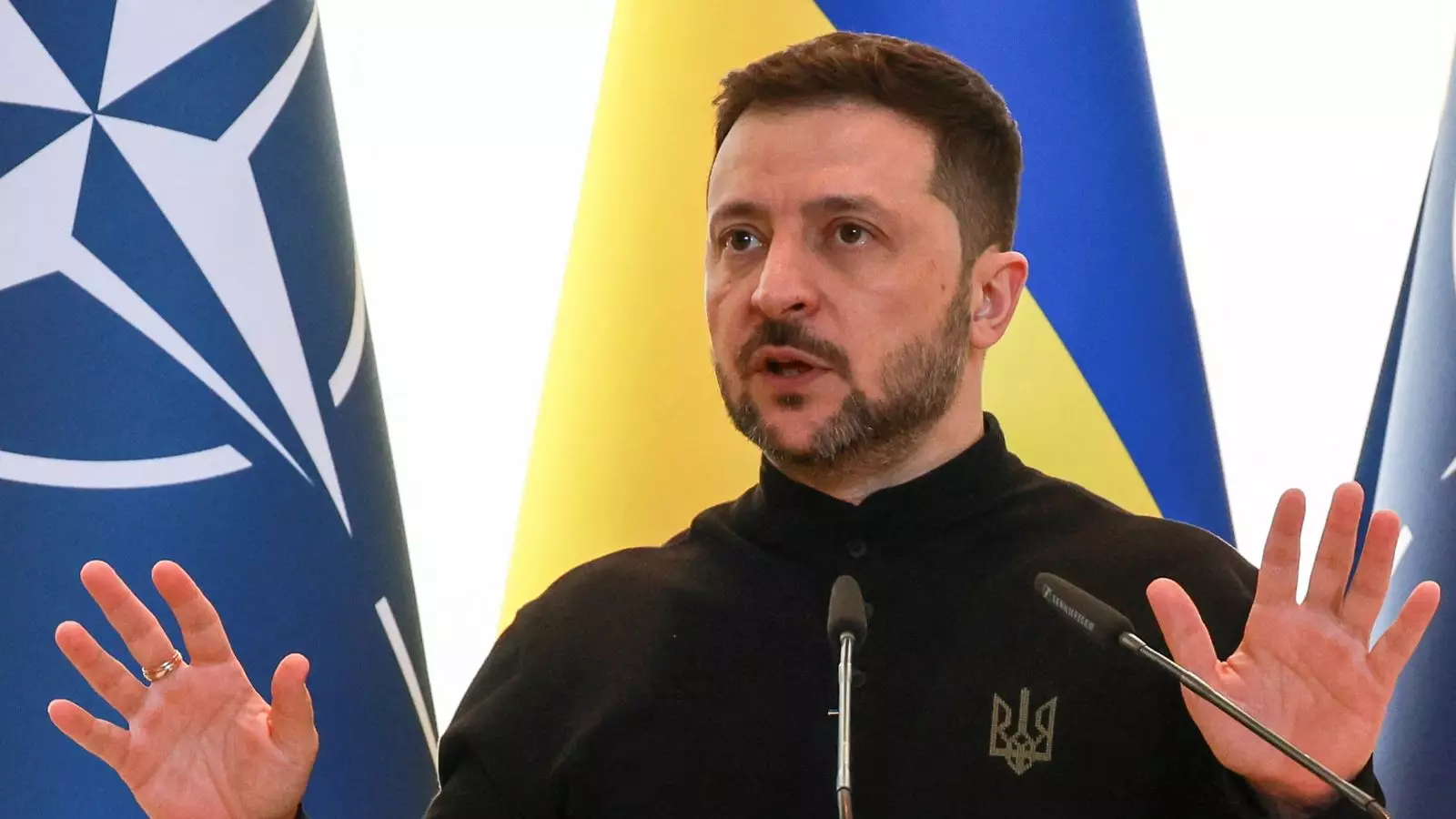In a world profoundly marred by conflict and discord, the recent Easter Monday phone call between Sir Keir Starmer and Ukrainian President Volodymyr Zelenskyy epitomizes the delicate yet vital thread of diplomatic engagement. Starmer’s unwavering commitment to Ukraine resonated strongly during their conversation, where he underscored the need for a full ceasefire, emphasizing that the time is ripe for Russian President Vladimir Putin to demonstrate genuine intent to end what is unequivocally described as a “brutal war.” This exchange underscores the importance of international solidarity in times of crisis, but the deeper question remains: do such diplomatic overtures hold any substantial promise for peace, or are they merely a façade, obscuring the brutal realities of war?
The Inverted Reality of Ceasefire Agreements
Putin’s recent declarations—open to bilateral talks and seemingly extending an olive branch—represent an alarming paradox of sincerity. As Zelenskyy pointed out, the 30-hour Easter truce became a convenient stage for Russia to mask its aggressive intentions, with accusations flying about countless violations during what was purportedly a period of peace. This raises significant doubts about the credibility of Putin’s willingness to engage in genuine dialogue. The historical context of the conflict reveals a persistent pattern: commitments are often binding in rhetoric but flimsy in practice.
The character of power politics suggests that when one side, in this case, Ukraine, calls for an unconditional ceasefire, it is met with skepticism from a regime known for its duplicity. Zelenskyy’s assertions that Russia had breached the ceasefire over two thousand times speak volumes about the grim reality that sanctions and pacifying negotiations may do little to impact the Kremlin’s strategy. If anything, they may embolden it.
American Interventions and Their Timing
Adding a convoluted layer to this geopolitical chess game is the voice of former President Donald Trump, whose recent comments highlight a tangible pressure on diplomatic negotiations. Trump’s insistence that negotiations must bear fruit soon, or risk the United States stepping back from peacemaking efforts, raises an unsettling dichotomy: are we truly concerned about peace, or merely eager for American interests to resume flourishing in the aftermath of war? It paints a picture of diplomacy heavily skewed by the prospect of economic opportunities rather than genuine humanitarian concerns.
The notion that both Moscow and Kyiv could “start to do big business” post-conflict injects a grotesque undercurrent into ongoing discussions. It suggests that the tragic suffering of countless civilians may ultimately play second fiddle to profit-driven motives, rendering the pursuit of peace superficial. The transactional nature of diplomacy often compels important actors to prioritize expedience over ethical considerations, creating a breeding ground for further distrust.
The Road Ahead: A New Kind of Cold War?
As the world watches, one must question whether we are witnessing the emergence of a new Cold War, orchestrated through a complex interplay of modern diplomacy, national interests, and feedback loops of violence. The willingness of leaders like Starmer to engage with leaders from different geopolitical alignments remains critical, yet all engagement must be couched in skepticism. Will the promises made today survive in a world where military aggressions and accusations form the narrative?
Moreover, if Zelenskyy seeks to transcend the psychological barriers erected by years of conflict, it requires more than diplomatic pleasantries or public commitments to ceasefire. It demands concrete actions, greater transparency, and accountability on all sides, especially from those, like Putin, who command military power. Otherwise, the specter of repeated conflicts looms ominously in the backdrop, a grim reminder of history’s cyclical nature.
In this complex dance of diplomacy and military strategy, it is the civilians—caught in the crossfire—who are most affected. They deserve a genuine commitment to establishing a foundation for a lasting peace rather than transient truces. For all parties involved, the challenge lies not just in the ability to negotiate but to foster a credible path toward meaningful resolution that places lives above profits. The sincerity of negotiations will determine their outcome, but history suggests that all too often, the ink dries on agreements that lead only to further desolation.


Leave a Reply